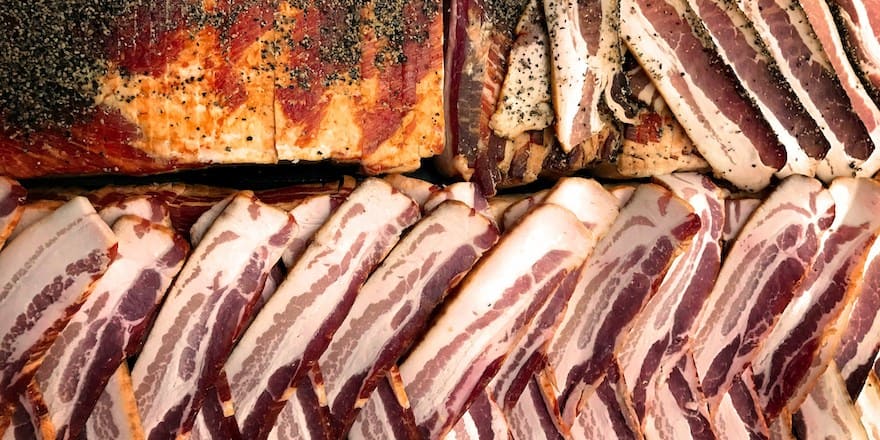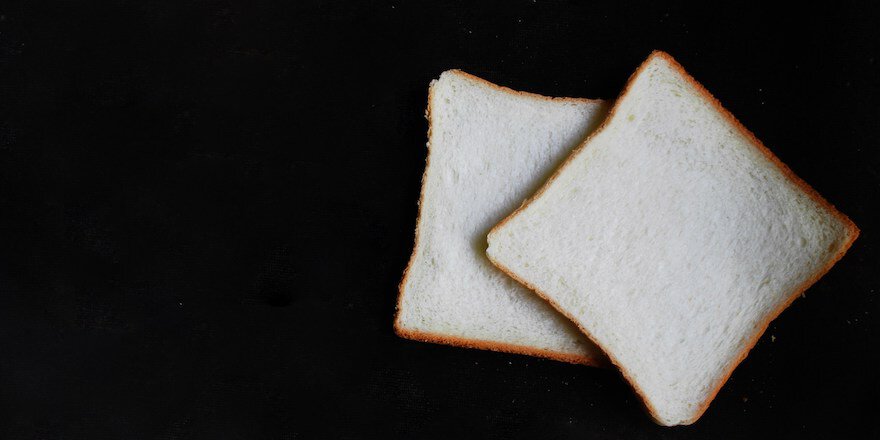Affecting about one in ten women worldwide, polycystic ovary syndrome is a common hormonal disorder.
Its origin? A dysfunction in hormone production:
- of LH, a female sex hormone that helps regulate the menstrual cycle and trigger ovulation. In the case of PCOS, its production is excessive, disrupts ovulation, and leads to high synthesis of androgens, the male hormones.
- of insulin, the hormone that regulates blood sugar, leading to resistance.
The symptoms often include acne, excessive hair growth, hair loss, as well as weight gain and irregular cycles. In the worst cases, PCOS is associated with a risk of type II diabetes and infertility.
To better cope with this condition, I recommend paying close attention to your diet and limiting these 5 categories of foods.
📚 Read also | The best dietary supplements for acne according to a naturopath
1. Foods high in sugar

Foods high in sugar are the first thing to avoid in the case of polycystic ovary syndrome. Why? Because sugar is an inflammatory food.
It causes an increase in insulin production, which in turn promotes:
- the rise of androgens
- the worsening of symptoms
- the risk of developing insulin resistance and type II diabetes
As shown by this systematic review, a controlled diet in the case of PCOS can have a beneficial impact on reducing insulin resistance.
So, even if they are not banned, limit candies, pastries, chocolates, or sodas. They are real sugar bombs.
Regarding fruits, I recommend eating them with a source of fats (almonds, walnuts, hazelnuts…) and a source of protein (like skyr) to lower the total glycemic load and avoid insulin spikes.
🎧 Listen to our podcast | Sugar or life?
2. Fatty meats and charcuterie

If good fats can be consumed without issue, I recommend limiting a high proportion of saturated fatty acids.
Their consumption could trigger a greater molecular inflammation pathway than in unaffected women. This could impact hyperandrogenism and the risk of atherosclerosis.
At least that’s what this recent study indicates.
To reduce the negative effects of saturated fatty acids, avoid fatty meats and charcuterie and fried foods in large quantities.
Prefer good fats rich in omega-3 like rapeseed or flaxseed oil, salmon, walnuts…
3. Alcohol

It’s no secret, alcohol is an inflammatory food! For those with or without polycystic ovary syndrome.
This review clearly illustrates the connection between gastrointestinal tract inflammation and alcohol consumption.
Consume it in moderation during special occasions or weekends.
4. Ultra-processed products

Ultra-processed products are often high in added sugars, high glycemic index carbohydrates, and saturated and trans fats. In other words, a perfect cocktail to worsen PCOS symptoms.
While they can be convenient for everyday life, I recommend limiting the use of prepared meals, industrial pastas, dehydrated soups, chocolate bars, or even breakfast cereals.
Whenever possible, opt for homemade meals and whole foods.
A tip: to better choose your processed products, don’t hesitate to analyze the composition. Or even use specialized apps to help you.
🎧 Listen to our podcast | Who’s afraid of ultra-processed foods?
5. High glycemic index carbohydrates

High glycemic index carbohydrates cause the same problem as sugary foods. They make blood sugar levels soar after consumption, resulting in a sharp insulin increase.
While it’s not necessary to eliminate them, consume white bread, white pasta, all refined cereal products in moderation. And potatoes in the form of puree, certain fruits (watermelon) and vegetables (turnip).
To reduce their impact on blood sugar levels, combine them with a lipid or protein source.
Alternatively, I suggest adding whole grains or legumes to your meals, which are rich in fiber and have a low glycemic index.
They would lead to an improvement in the clinical characteristics of PCOS. This is mentioned in this review, although the scientific evidence for a definitive recommendation is still insufficient.
Scientific sources and studies
- Shang Y, Zhou H, Hu M, Feng H, 2020, Effect of Diet on Insulin Resistance in Polycystic Ovary Syndrome
- González F, Considine RV, Abdelhadi OA, Xue J, Acton AJ, 2021, Saturated fat ingestion stimulates proatherogenic inflammation in polycystic ovary syndrome.
- Bishehsari F, Magno E, Swanson G, Desai V, 2017, A. Alcohol and Gut-Derived Inflammation.
- Saadati N, Haidari F, Barati M, Nikbakht R, 2021, The effect of low glycemic index diet on the reproductive and clinical profile in women with polycystic ovarian syndrome: A systematic review and meta-analysis.



